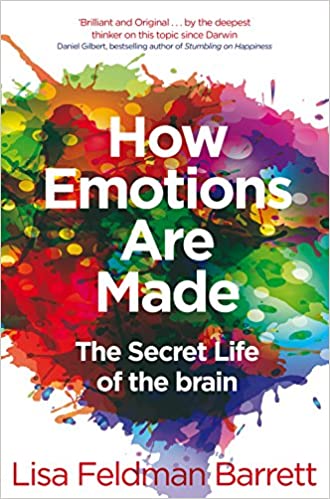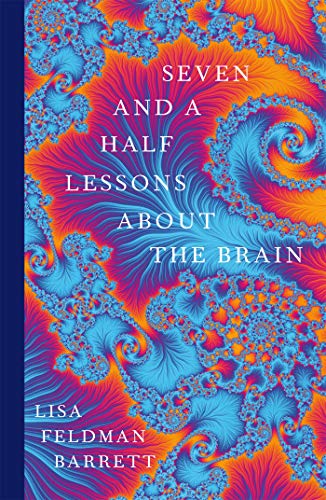Lisa Feldman Barrett is a neuroscientist and psychologist who has been studying the brain for over 30 years. She is the author of several successful books including How Emotions Are Made: The Secret Life of the Brain, and Seven and a Half Lessons About the Brain.
A large body of Lisa’s work centres around emotions, specifically the concept that emotions are not hard code into the brain from birth, but rather built by our brains as and when we need them, in context to the situations they are needed.
“No brain on this planet contains emotional circuits”
In other words, emotions are best guesses by the brain. A result of billions of brain cells working together to predict what action to do next, based on current feelings, previous experiences, memories, and context.
We are born with some basic pre-coded physiological feelings such as calmness, discomfort, comfort, agitation, excitement, but these are not emotions.
The emotion is generated on demand by our brains based on it’s interpretation of the meaning of the physical sensations we are experiencing.
So to illustrate with an example. When it comes to an exam, someone may experience a physical churning sensation in their stomach.
Their brain will run through all previous experience and knowledge of exams, and may predict the meaning of that churning to be anxiety. The brain then generates the emotion of anxiety from the prediction.
However, a churning in the stomach doesn’t in itself automatically mean anxiety. For example, it can also occur when someone is hungry, or excited.
The difference is the context, combined with knowledge and experience. The brain is just predicting “why” those physical sensations are there, and then generating emotions to match. However, as with any prediction, they aren’t always correct.
Somebody else doing the same exam, with the identical churning sensation, but with previous experience and knowledge of enjoying exams, may predict this event to be exciting, and won’t experience anxiety.
Another exam example would be an elevated heart rate. An elevated heart rate in itself doesn’t mean anxiety. Our hearts beat faster when we exercise, and in this context, we don’t normally generate the feeling of anxiety.
Advertising guru Rory Sutherland describes this in a humorous way by liking the mind to a company.
He jokes that “we all like to think of our rational conscious minds as the CEO of our decision making. However, our conscious minds are actually much more like the PR department. Our unconscious minds actually run the show, and our conscious minds just make up a story later to explain why we did it.”
“Ask ourselves: Could this have a purely physical cause?”
One of the tips Lisa gives when we are experiencing unpleasant feelings is to ask ourselves “could this have a purely physical cause?”.
She says this can transform emotional suffering into just mere physical discomfort as many times there can be a physical reason for those feelings such as hunger, dehydration, tiredness.
“Relabel the feeling to a postive emotion”
Another tip Lisa calls “energised determination”. This is re-labelling feelings. So with an exam, it might be relabelling feelings such as stomach churning or an elevated heart rate as “excitment”, or “the mind is increasing focus”.
Lisa does acknowledge that applying these types of techniques, won’t turn everyone into an emotional Jedi, but do allow us to take back much more control over our emotions.
Mental Rehersal
In my hypnotherapy sessions with anxious clients, I will often help them with mental rehearsal during hypnosis.
Running through future events successfully, whilst feeling calm and relaxed, updates our brain’s prediction model with a greater range of references.
Therefore, when the actual events come up, the mind says “oh, I’ve done this before many times, and I did it successfully, and I was calm, relaxed, and confident”.
Therefore, when mind is much more likely to predict calm, relaxation and confidence are required, and generate those emotions.

